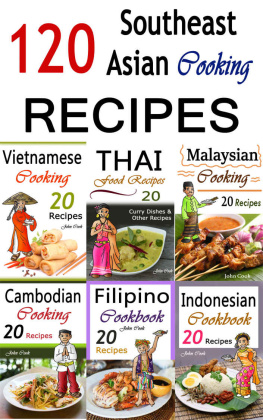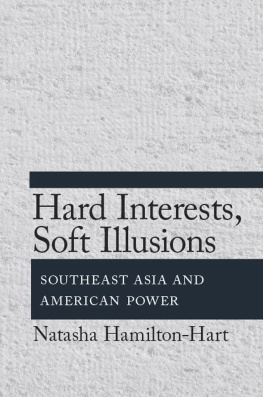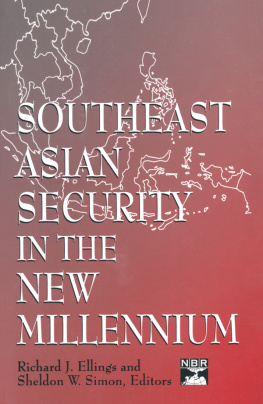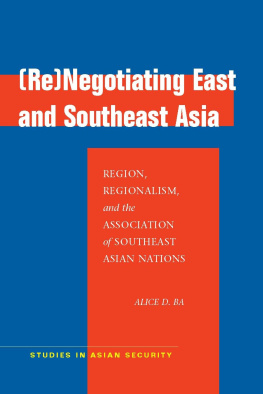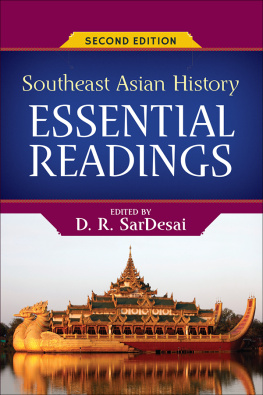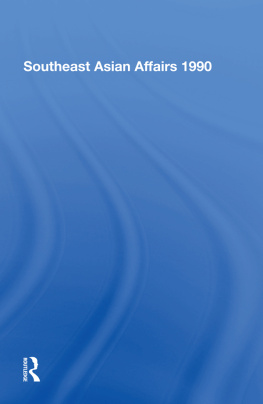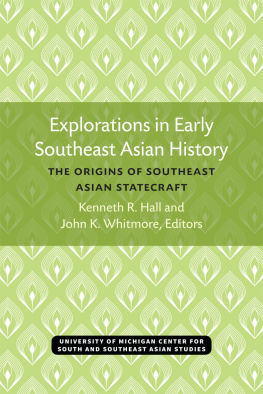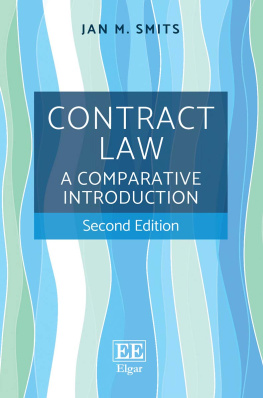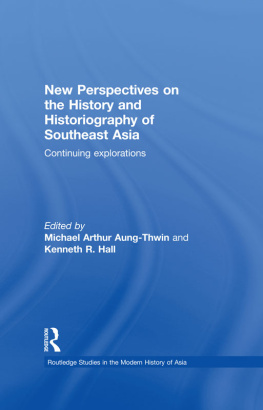SOUTHEAST ASIAN ENERGY TRANSITIONS
In memory of Nellie
For Paul
Southeast Asian Energy Transitions
Between Modernity and Sustainability
MATTIJS SMITS
Wageningen University, The Netherlands
First published 2015 by Ashgate Publishing
Published 2016 by Routledge
2 Park Square, Milton Park, Abingdon, Oxon OX14 4RN
711 Third Avenue, New York, NY 10017, USA
Routledge is an imprint of the Taylor & Francis Group, an informa business
Copyright Mattijs Smits 2015
Mattijs Smits has asserted his right under the Copyright, Designs and Patents Act, 1988, to be identified as the author of this work.
All rights reserved. No part of this book may be reprinted or reproduced or utilised in any form or by any electronic, mechanical, or other means, now known or hereafter invented, including photocopying and recording, or in any information storage or retrieval system, without permission in writing from the publishers.
Notice:
Product or corporate names may be trademarks or registered trademarks, and are used only for identification and explanation without intent to infringe.
British Library Cataloguing in Publication Data
A catalogue record for this book is available from the British Library.
The Library of Congress has cataloged the printed edition as follows:
Smits, Mattijs.
Southeast Asian energy transitions : between modernity and sustainability / by Mattijs Smits.
pages cm
Includes bibliographical references and index.
ISBN 978-1-4724-4875-0 (hardback) ISBN 978-1-3156-1005-4 (ebook) ISBN 978-1-3170-5217-3 (epub) 1. Energy industriesSoutheast Asia. 2. Renewable energy sourcesSoutheast Asia. 3. Carbon dioxide mitigationSoutheast Asia. I. Title.
HD9502.A782S65 2015
333.790959dc23
2015005950
ISBN 9781472448750 (hbk)
ISBN 9781315610054 (ebk-PDF)
ISBN 9781317052173 (ebk-ePUB)
Contents
List of Figures
List of Tables
Notes on the Author
Mattijs Smits researches and teaches in the fields of energy policy and politics, environment, sustainability, (rural) development and climate finance. During his academic and professional career, he spent extended periods living and working as a researcher and consultant in Southeast Asia, notably in Laos, Thailand and Vietnam. He holds degrees from four different universities on three continents: a BSc from the University of Utrecht, an MSc from Wageningen University and PhD degrees from The University of Sydney and Chiang Mai University (as part of a cotutelle arrangement). He is currently working as an assistant professor at the Environmental Policy Group of Wageningen University, The Netherlands.
Foreword
Energy options and practices are integral to the process of development. Energy is also at the centre of concerns over climate change, various dimensions of geopolitical and livelihood security, global-level land-use choices, and other present day debates on global futures.
Perhaps nowhere are questions over energy futures more pertinent than in the rapidly growing economies of Southeast Asia, and in particular in the countries of the Mekong Region. Not only does rapid economic development produce pressures for individual countries to exploit their own energy resources, with accompanying social and environmental impacts. Energy development is also integral to the relationship between countries, as electricity is sold across borders and as energy development in some states becomes not just a means to power economic activity but a source of national income in its own right. And energy is integral to the changes in daily life that define the experience of development at a micro-level.
There is an understandable tendency to focus on the material economic and environmental questions around power production. Peak oil, impacts of dams, winners and losers in the energy game are all much discussed and relevant issues. Yet the understanding of energy questions in these terms tends to miss the deeper ways in which energy is imbued within bigger questions of development.
In this book, Mattijs Smits gets to the very heart of two big themes in development: modernity and sustainability. These themes are all too often understood in contraposition to one another. In the long-run narrative of trends in development studies, modernity gets associated with the early faith in large-scale development associated with modernisation theory of the early development era, while sustainability is posited as a late-development era reaction to, or taming of, the growth-at-all-costs approach. As Smits shows eloquently in this book, however, modernity and sustainability are much better understood as complementary and even mutually constitutive concepts. He illustrates this mutuality clearly in the context of energy choices and debates.
What distinguishes this book, however, is not just the big ideas that it engages. It is also marked by two significant departures in work on engagement of energy issues with development studies.
The first key departure of the book is the framing of the work in social theory. Smits employs the concept of energy transitions to apply ideas around socio-technical studies, ecological modernisation and political ecology to the context of change, choices and the tensions in each. He also sets a convincing agenda for a multi-scalar and nuanced approach to geographies of energy and more specifically electricity development.
The second key departure of Mattijs Smitss fine contribution is its grounding in country and village level case studies. Employing two cases from Thailand and two from Laos, each based on detailed fieldwork, Smits shows how countries that share commonalities of history and culture, share a common border, and that are intricately linked in energy and associated economic interdependence, nevertheless manifest framings and debates around energy development that are associated with quite specific trajectories of social, economic and political development. At a local level, the embedding of energy transitions in everyday life is a particularly significant aspect of the ethnographic component to Smitss work.
This book is far from the last word in writing on energy transitions and their association with the tensions between modernity and sustainability. On the contrary, the approach lends itself to thinking about such issues well beyond Thailand and Laos, the Mekong, and Southeast Asia, and as such has relevance to all those interested in the embeddedness of energy within societal transitions associated with development.
Philip Hirsch
The University of Sydney, Australia
Preface
This book addresses two important sets of questions. First, how can we reconcile development and growth of energy demand with questions about sustainability? Can we maintain and increase economic prosperity driven by increased energy usage while lowering our environmental impact and carbon footprint? Is it possible to eradicate poverty without disturbing the planets ecosystems even further? These are questions that have been on the agenda for decades, but are still highly relevant in times of persistent poverty, climate change and crises. Second, what roles do energy and sustainability play in driving social and political change? How does access and availability of energy (continue to) change lives in the global North and South? What is the interaction between energy, technology and the way we travel, communicate and entertain ourselves? This second group of questions has been surprisingly underexposed, but is in my view critical in order to find answers to the first set.



